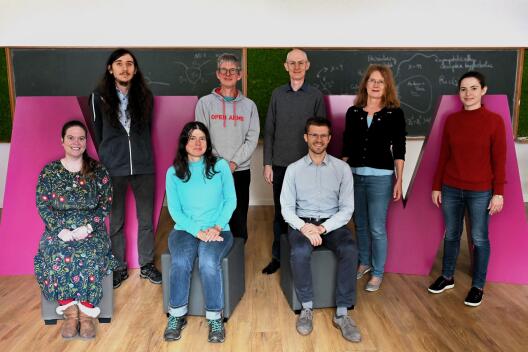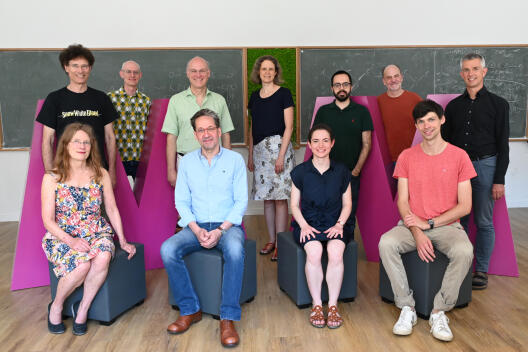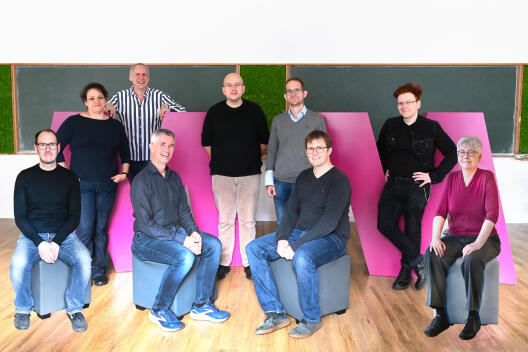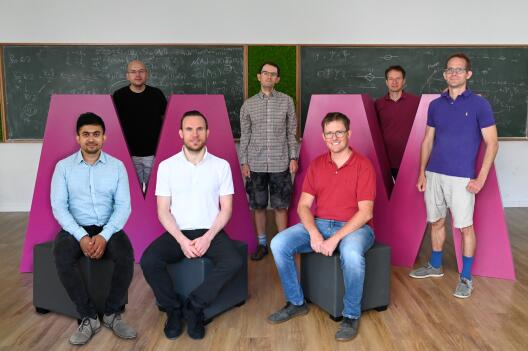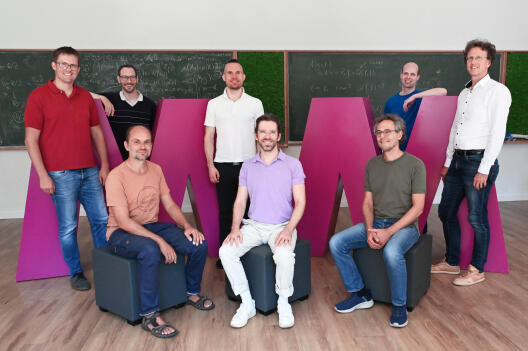Research programme
In our research programme we focus on ten research topics, each spanning multiple mathematical fields and uniting many researchers. These topics are organised in three areas: Invariants and Foundations, Non-linear Spaces and Operators, and Models, Approximations and Data.
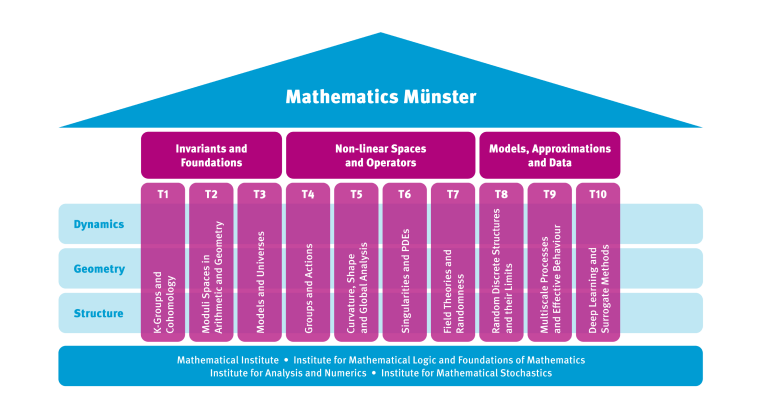
Specifically, we explore the interplay between algebra and topology to advance K-theory, the (local) Langlands programme, and central open questions in C*-algebras. Using tools from mathematical logic, we build models and investigate their interactions with arithmetic geometry. By transferring methods between differential geometry and the analysis of partial differential equations, we address fundamental questions in general relativity and geometric analysis. We also tackle mathematical challenges motivated by real-world phenomena, such as analysing field theories with new tools in stochastic analysis or developing mathematical models, their approximations, and data-driven machine learning approaches in the context of random structures and multiscale problems.




